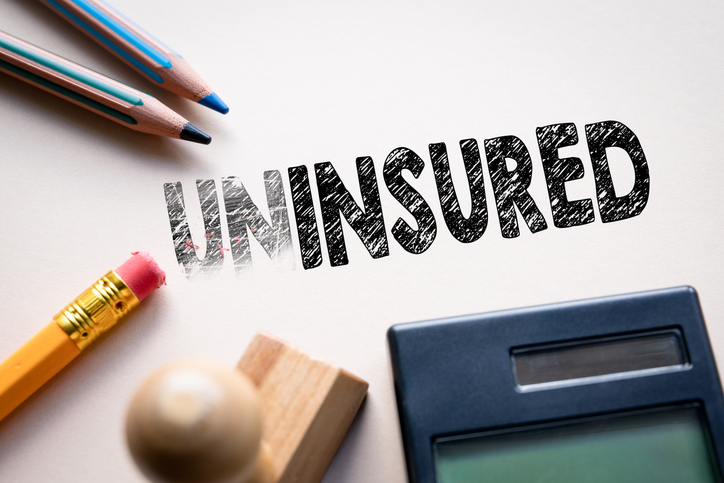Uninsured Motorists in Florida Are Against the Law
Did you know that operating a car without insurance is against the law in Florida? In addition to legally driving a vehicle, Florida law requires insurance for you to renew your registration. If your car insurance lapses in Florida, you must surrender your plates until your insurance is reinstated.
What Happens When Your Insurance Lapses
There’s no way to get sneaky about it, either. The state requires insurance companies to notify them if a car insurance policy lapses. The Department of Highway Safety and Motor Vehicles will ask you to provide proof of coverage. Failure to provide proof will result in a suspended driver’s license, car registration, and license plates for three years. Once the suspension is in place, not only will you have to provide proof of insurance, but you’ll have to pay a $150 fine as well. If your insurance lapses a second time within three years, the fine increases to $250. For a third lapse within three years, the fine increases to $500.
Car Insurance Requirements in Florida
To legally get behind the wheel in Florida, drivers are required to carry an Insurance I.D. card, which they receive when they purchase their policy. Even if you have insurance, if you are unable to show your I.D. card to a police officer during a traffic stop, they can write you a ticket. Anyone found guilty of making false statements about their insurance or forging proof of insurance could be found guilty of a second-degree misdemeanor.
Florida’s Car Insurance Minimums
Florida is a “No Fault” state. This means that your personal injury insurance will pay for any injuries to your person, regardless of who is at fault. The minimum required personal injury protection in Florida is $10,000, which compared to other states is quite low. The other type of coverage required by Florida is property liability coverage, with a minimum coverage amount of $10,000. This coverage only covers damages to other property caused by you and your vehicle. It does not cover damages to your vehicle, and again, the $10,000 minimum is quite low compared to other states.
Minimum Coverage May Not Be Enough
An important thing to keep in mind is that being a “No Fault” state only applies to insurance. A driver can legally sue you for damages not covered by your insurance if you are determined to be the cause of the accident. Florida’s low minimums also could possibly not cover the full extent of your injury or damages, which puts you on the hook to pay for the remainder. It could be worth it to increase your coverage above the minimums required by Florida Law or including bodily injury coverage, which will help pay for any injuries you may have caused.
Get Quality Auto Insurance from Florida Farm Bureau Insurance
Avoid the unpleasantness of being uninsured or underinsured. Get a free quote on a quality car insurance policy by using our online tool.

